There are many flowers name starting with L. One of the most well-known is the lily, which is often associated with funerals and is a symbol of purity and innocence. Another flower that starts with “L” is lavender, which is famous for its beautiful aroma and is often used in perfumes and soaps.
The lotus is a beautiful flower that is often used in Buddhist and Hindu ceremonies and is a symbol of purity and enlightenment. The larkspur is a colorful flower that comes in many shades of blue, purple, and pink and is often used in flower arrangements. The lilac is a fragrant flower that blooms in the springtime and is known for its beautiful pastel colors.
Lastly, the lisianthus is a beautiful flower that comes in many colors and is often used in wedding bouquets and other special occasions. These are just some of the many flowers that begin with the letter “L” and each one has its own unique beauty and significance.
Flowers Name Starting with L
Lungwort
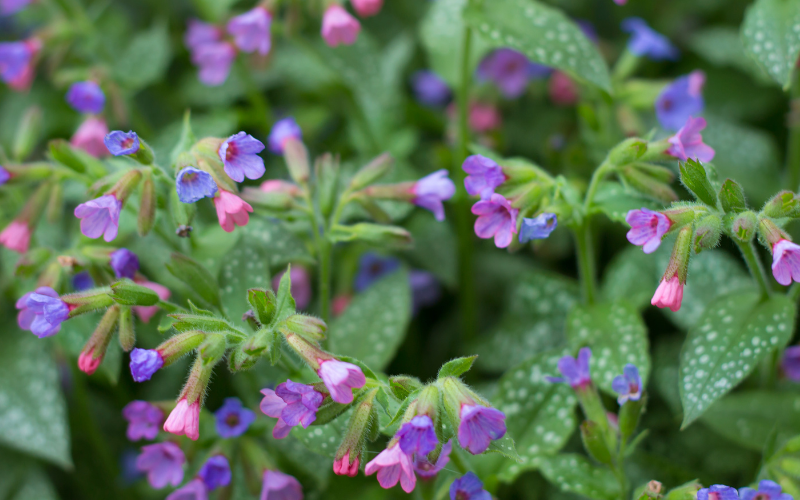
The Lungwort flower is a beautiful perennial plant. That is native to Europe and Asia. These flowers have been used for centuries for medicinal purposes, particularly for treating respiratory issues.
The flowers are usually pink, lavender, or blue and have a unique spotting pattern on their leaves. It is a perennial plant that grows well in shaded areas and blooms in the springtime. It is also an excellent plant for attracting bees and butterflies to your yard.
| Scientific Name | Pulmonaria |
| Native Range | Europe, Western Asia, and North Africa |
| Flowering Season | Early spring |
Lycoris
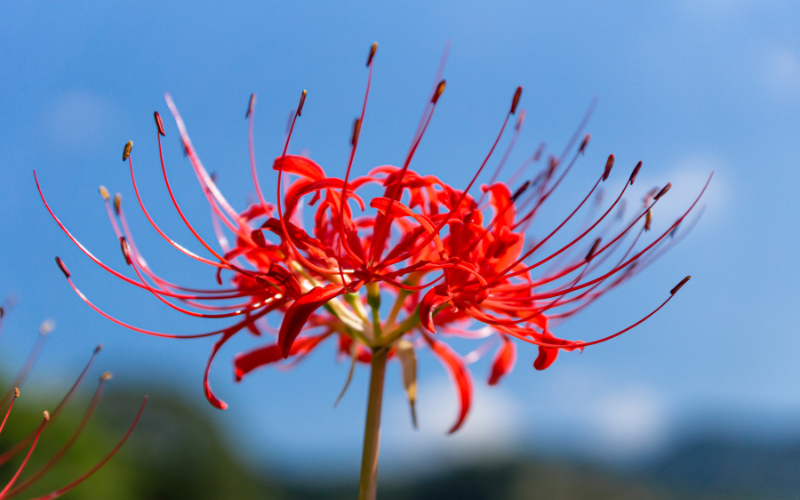
Lycoris is a beautiful flower that is native to East Asia. It’s also known as the “surprise lily” or “magic lily,” and it’s a one-of-a-kind plant that develops from a bulb and produces amazing flowers in late summer and early fall.
Because the Lycoris flower represents rebirth and resurrection, it is a popular option for funerals and memorial events. Overall, the Lycoris flower is a lovely and unique example that has won the hearts of many people all over the world.
| Scientific Name | Lycoris |
| Native Range | Asia |
| Flowering Season | Late summer or early autumn |
Love Lies Bleeding
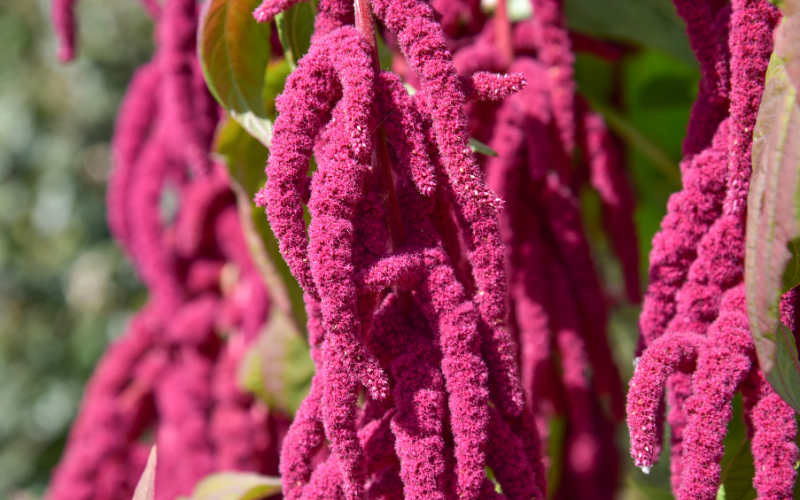
The Love Lies Bleeding flower is one of the most unique and beautiful flowers in the world. This flower gets its unusual name from its vibrant deep red blooms that hang down like blood droplets from the stem.
It is native to South America but is now grown all over the world and is a popular choice for both beautiful and relaxing plants. The Love Lies Bleeding plant is an annual, and they prefer full sun and well-drained soil. They are fairly low maintenance and do not require a lot of attention.
| Scientific Name | Amaranthus caudatus |
| Native Range | South America |
| Flowering Season | Late summer or early fall season |
Living Rock Cactus
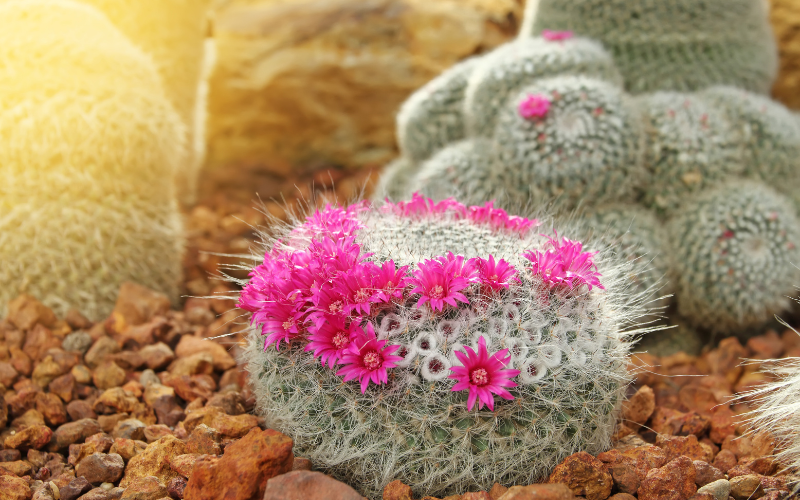
The Living Rock Cactus is a beautiful and unique plant that is native to Southern Africa. This plant is well-known for being able the appearance of rocks, allowing it to blend in easily with the environment.
One of the most interesting parts of this plant is its flower, which often only blooms for a short period of time. Its leaves are thick and fleshy, resembling small stones or pebbles, with colors varying from green, brown, grey, or red shades. In late fall and early winter, each leaf pair produces a single bloom that grows from the center of the leaves.
| Scientific Name | Lithops |
| Native Range | Southern Africa |
| Flowering Season | Summer |
Leucadendron
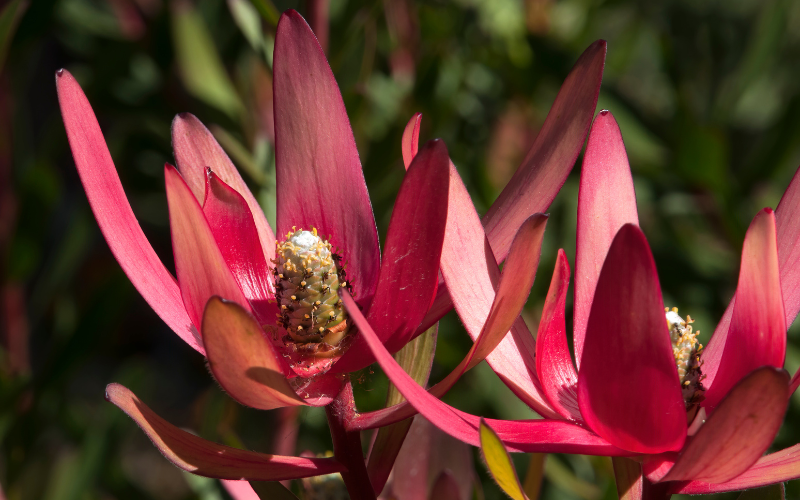
Leucadendron is a beautiful and unique flower that is native to South Africa. It belongs to the Proteaceae family, which also includes the flowers Protea, banksia, and Grevillea. The flower is also popular in the florist industry due to its long vase life and vibrant color.
The Leucadendron flower is perfect for bringing color to any garden or landscape, and it may also be used in designs as a cut flower. Aside from its beauty, the Leucadendron flower is able to endure drought and heat-tolerant, making it an excellent choice for dry conditions.
| Scientific Name | Leucadendron |
| Native Range | South Africa |
| Flowering Season | Late winter to spring |
Leontopodium
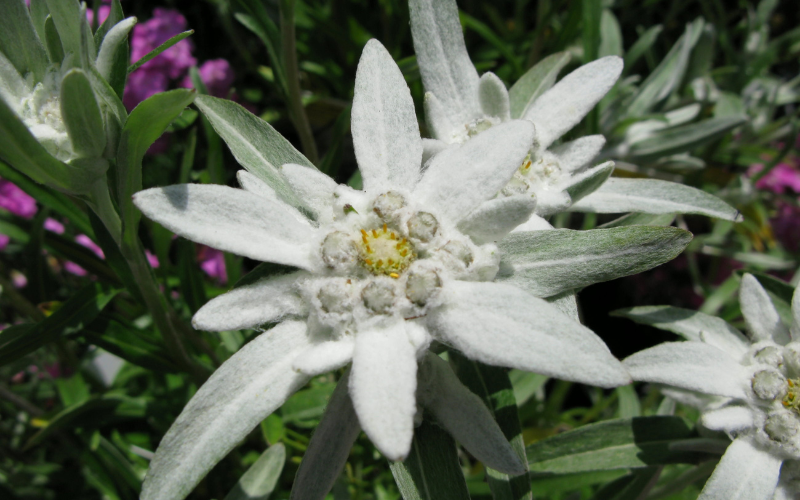
The leontopodium flower is a beautiful and rare flower that is native to the European Alps. It is known for its unique and delicate beauty, with its small white petals and yellow center that resemble a star.
It is also a symbol of strength, purity, and courage in many cultures. Because of its rarity, the Edelweiss flower is considered a protected species and should never be picked or removed from its natural habitat.
| Scientific Name | Leontopodium |
| Native Range | Europe and Asia |
| Flowering Season | Summer |
Lemon Thyme
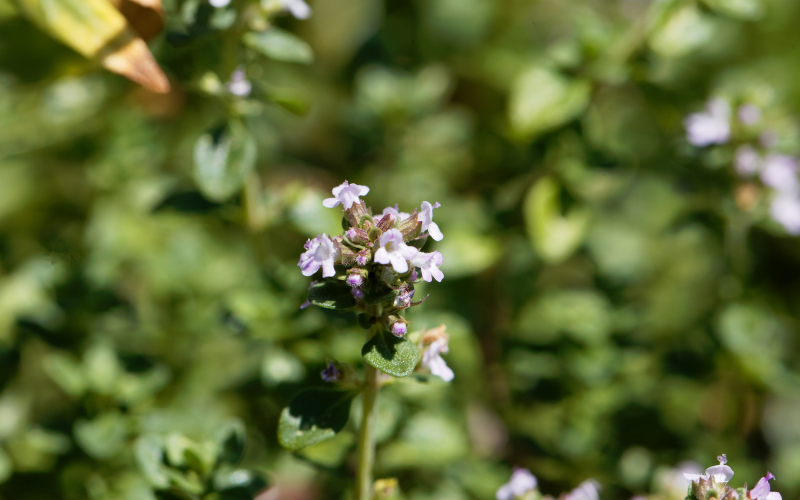
Lemon thyme is a beautiful herb that is often used in cooking and gardening. It is a perennial plant that is native to the Mediterranean and is known for its fragrant lemon scent and small, delicate flowers. The lemon thyme flower is particularly beautiful with its lavender-blue petals and tiny white centers.
These flowers are not only beautiful, but they are also edible and can be used to add a unique flavor to dishes and desserts. Lemon thyme is a great addition to any herb garden as it is easy to grow and maintain, and it attracts beneficial insects such as bees and butterflies.
| Scientific Name | Thymus citriodorus |
| Native Range | Mediterranean |
| Flowering Season | Summer |
Large Yellow Foxglove
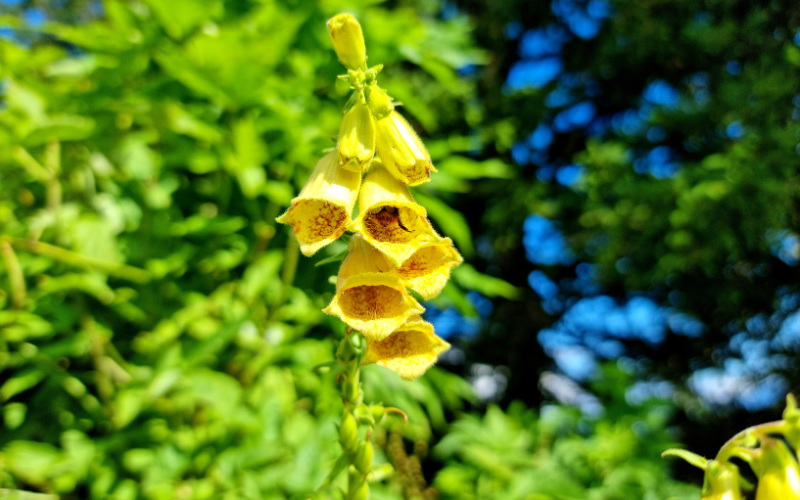
The Large Yellow Foxglove is a beautiful plant that will brighten up any garden. It is a biannual plant, which means it takes two years to complete its life cycle of growth and seed production.
During the first year, the plant forms a rosette of green leaves close to the ground. The plant sends up a single stem with tall, beautiful spikes of yellow flowers in the second year. The flowers are tubular in shape with speckled throats and can grow up to three feet tall. The large yellow foxglove is a favorite of bees, making it a great addition to any pollinator garden.
| Scientific Name | Digitalis grandiflora |
| Native Range | Europe |
| Flowering Season | Late spring to early summer |
Large Fothergilla
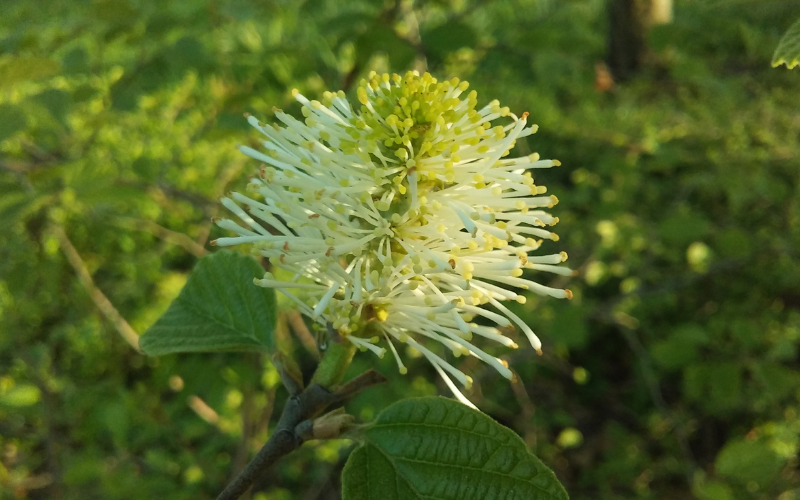
The large Fothergilla flower is a stunning flowering plant that is native to the southeastern United States. This plant is known for its beautiful white, fluffy flowers that bloom in the spring, usually in late April or early May.
The flowers attract bees and other bugs due to their delicious, honey-like flavor. The huge Fothergilla is especially prized for its leaves, which become a lovely burnt orange and deep crimson in the winter. This plant is relatively easy to care for and can grow up to 6-10 feet tall and wide. It thrives in well-draining soil and prefers partial to full sun exposure.
| Scientific Name | Fothergilla major |
| Native Range | Southeastern United States |
| Flowering Season | Early to mid-spring |
Lance Leaf Blanket
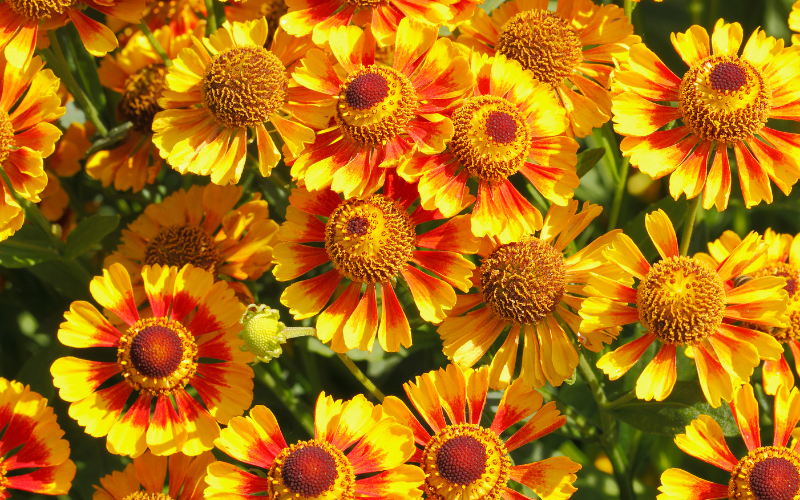
The Lance Leaf Blanket flower is a beautiful plant that can brighten up any garden. These flowers are native to North America and are known for their bright yellow and red blooms, which are similar to the colors found in a warm summer sunset.
The plant’s leaves are narrow and lance-shaped, which gives it its unique name. These flowers bloom from June to September and attract a variety of bees and butterflies. They are also relatively low maintenance and can tolerate a wide range of soil types, as well as drought conditions.
| Scientific Name | Gaillardia aestivalis |
| Native Range | North America |
| Flowering Season | Summer |
Ladybells
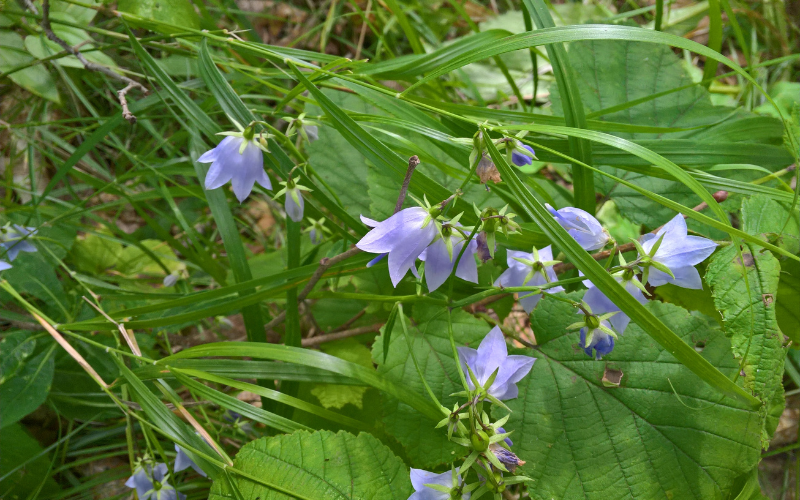
Ladybells is the common name for the flower species Adenophora. Ladybells flowers are typically bell-shaped or tubular, with five petals fused together at the base, forming a deep throat.
The flowers can range in color from shades of blue, purple, or white. Ladybells generally bloom during the summer months, from late spring to early autumn, depending on the specific species and growing conditions.
| Scientific Name | Adenophora liliifolia |
| Native Range | Asia, Europe, and North America |
| Flowering Season | Summer |
Lady Finger Cactus
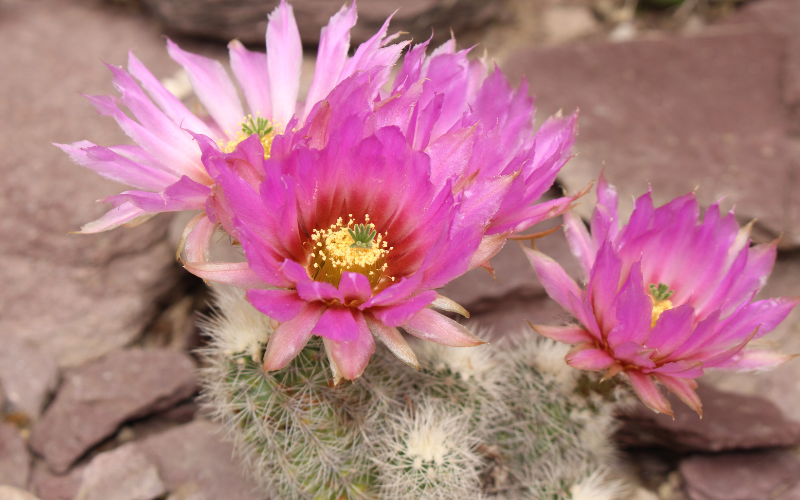
The Lady Finger Cactus is a stunning and unique plant. It is scientifically known as Echinocereus pentalophus. They are typically yellow or golden in color and have a funnel or bell-shaped structure.
Lady Finger Cactus flowers typically bloom in late spring to early summer. The flowering period of the Lady Finger Cactus is relatively short-lived, typically lasting for a few days to a couple of weeks.
| Scientific Name | Mammillaria elongata |
| Native Range | Mexico |
| Flowering Season | Spring |
Lady’s Slipper Orchid
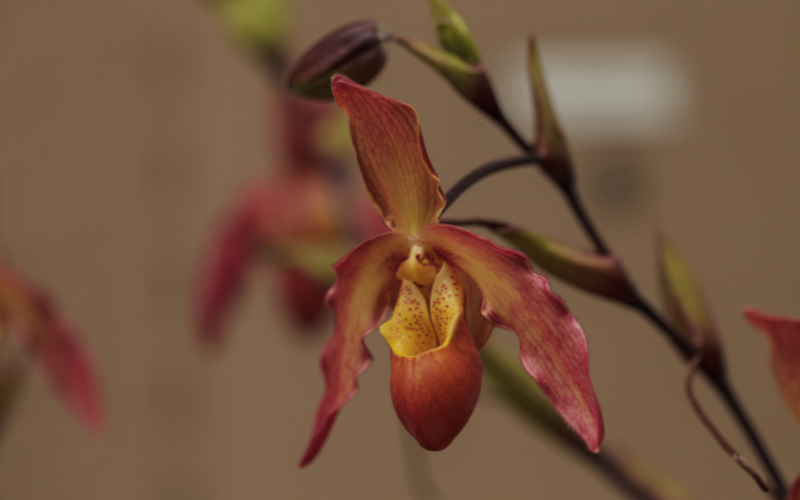
Lady’s Slipper Orchid is a beautiful plant. The flower takes its name from its distinct pouch-like structure, resembling a delicate slipper, which serves as a natural trap for pollinators.
The blooming season of Lady’s Slipper Orchids can vary depending on the specific species and growing conditions. Its delicate petals come in a range of hues, from pale pinks and purples to vibrant yellows and oranges. It is a symbol of grace, delicacy, and resilience in the face of adversity.
| Scientific Name | Cypripedioideae |
| Native Range | Western North America |
| Flowering Season | Mid-winter and mid-summer |
Lance-Leaved Coreopsis
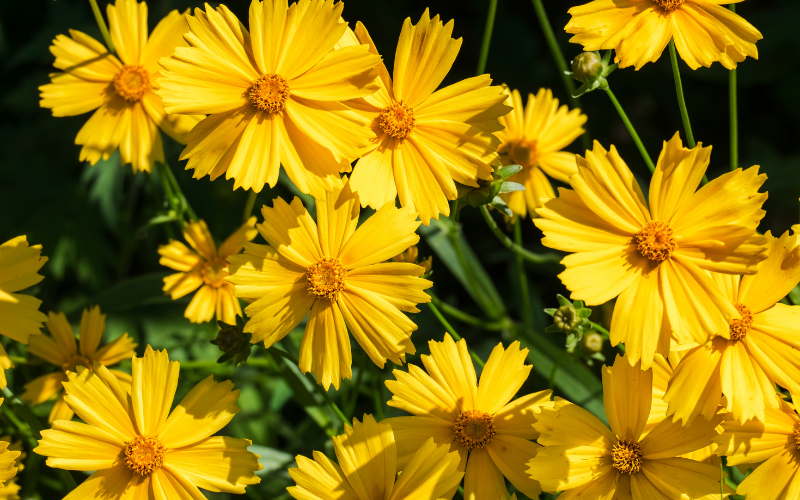
Lance-Leaved Coreopsis, scientifically known as Coreopsis lanceolata. Lance-Leaved Coreopsis is native to eastern and central North America, ranging from the United States to parts of Canada. It is popular for its bright and cheerful flowers.
The flowers have vibrant yellow petals with a dark brown or maroon center, known as a disc floret. Lance-Leaved Coreopsis typically blooms from late spring to mid-summer. The plants can reach a height of 1 to 3 feet (30 to 90 centimeters).
| Scientific Name | Coreopsis lanceolata |
| Native Range | North American |
| Flowering Season | Summer |
Lantana
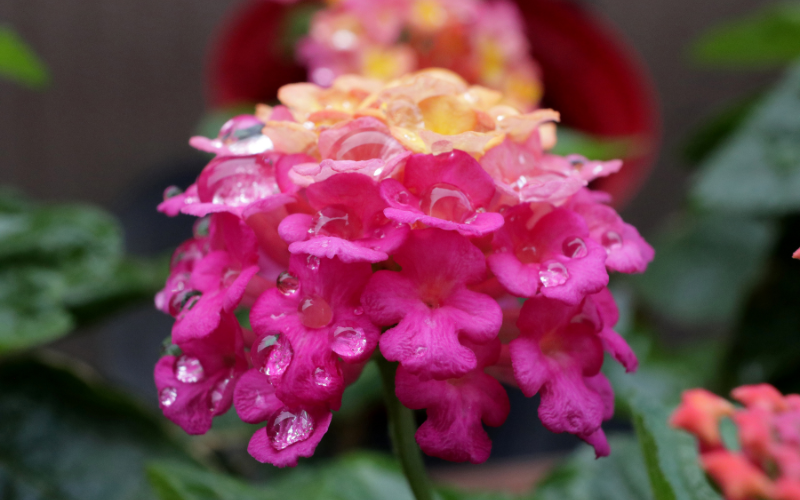
Lantana is a beautiful flower. Lantana species are native to tropical regions of the Americas and Africa. The flowers come in a variety of colors, including shades of orange, red, yellow, pink, and purple.
Lantana flowers bloom from late spring to fall, with the peak bloom period occurring during the summer months. They have dense, branching growth and can reach heights ranging from 1 to 6 feet (30 to 180 centimeters) depending on the species and cultivar.
| Scientific Name | Lantana camara |
| Native Range | Central and South America |
| Flowering Season | Spring to fall |
Larkspur
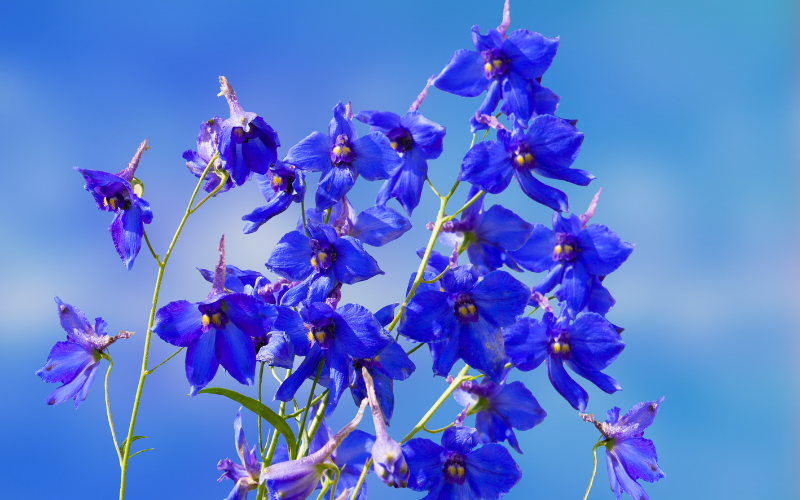
The Larkspur flower is a stunning plant. It is scientifically known as Delphinium. They come in various shades of blue, purple, pink, white, and sometimes yellow. Larkspur flowers typically bloom during the summer months, from late spring to early summer.
They have a tall, upright growth habit, often reaching heights of 2 to 4 feet (60 to 120 centimeters) or more. The Larkspur is also rich in symbolism, commonly associated with joy, positivity, and new beginnings.
| Scientific Name | Delphinium |
| Native Range | British Columbia and Alberta south to California, Arizona and New Mexico, and as far east as South Dakota and Nebraska |
| Flowering Season | Summer through Fall |
Lavandin
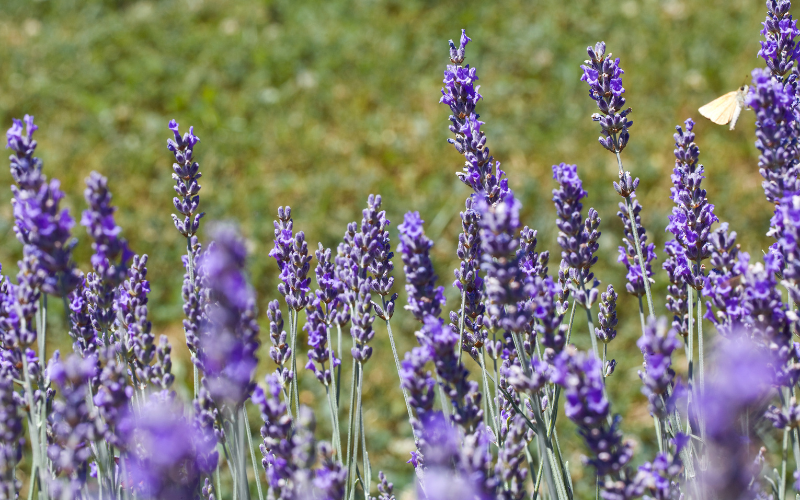
The lavandin flower is a stunning and fragrant flower. They are small, tubular, and densely packed together in long, slender spikes. Lavandin flowers are known for their long, slender stems and vibrant purple, pink, or white blossoms that form dense clusters.
Lavandin typically blooms in the summer. Lavandin flowers are commonly used in the production of essential oils.
| Scientific Name | Lavandula |
| Native Range | France and Spain |
| Flowering Season | Late summer |
Lavatera
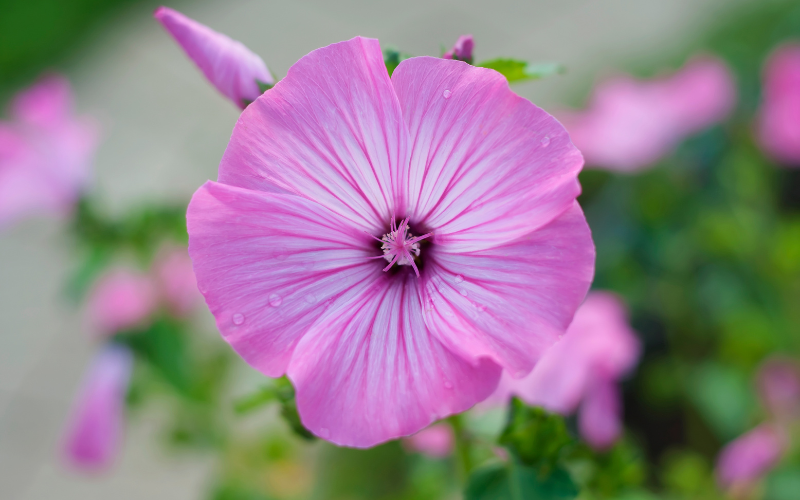
Lavatera is a beautiful flower. These plants are known for their attractive and showy flowers. The petals can be of various colors, including shades of pink, purple, white, or even bicolor combinations.
Lavatera plants generally bloom during the summer months, from late spring to early autumn. Lavatera plants can be annuals, perennials, or plants, depending on the species.
| Scientific Name | Lavatera |
| Native Range | Eastern Europe and southwestern Asia, from southern Germany south to Italy, and east to southern Russia, Kazakhstan, and Turkey |
| Flowering Season | Midsummer and continues blooming until frost |
Lavatera Mallow
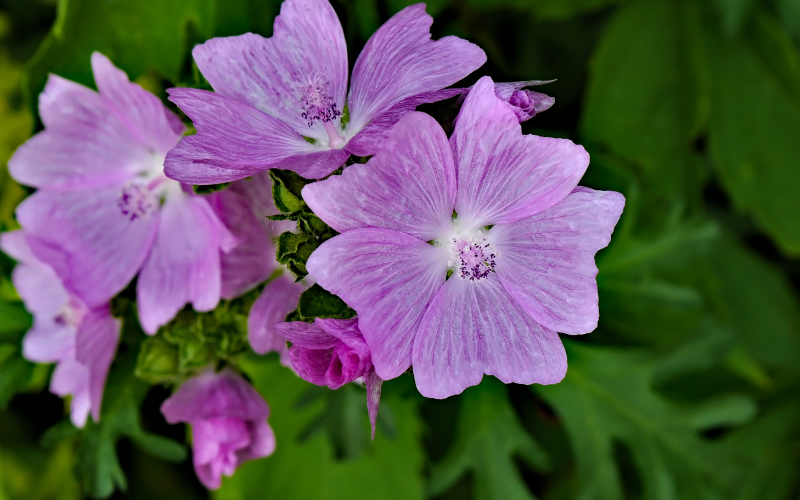
The Lavatera Mallow flower, also known as Lavatera trimestris, is a stunning and vibrant plant. Lavatera mallow plants are native to various regions, including Europe, North Africa, and parts of Asia.
Lavatera mallow flowers are typically large and display a range of colors, including shades of pink, purple, white, or a combination of colors. Lavatera mallow plants generally bloom during the summer months, typically from late spring to early autumn.
| Scientific Name | Lavatera |
| Native Range | Europe, North Africa, and Western Asia |
| Flowering Season | Summer |
Lavender Lavandula
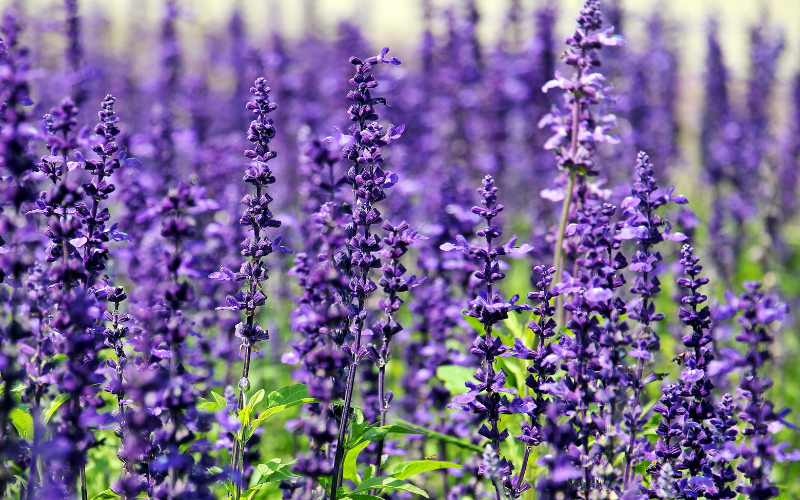
Lavender, scientifically known as Lavandula, is a popular flowering plant known for its fragrant flowers. The flowers are typically shades of purple, lavender, blue, or white, depending on the specific cultivar or species.
Lavender flowers typically bloom during the summer months, with the peak flowering period occurring in late spring to early summer. The essential oil extracted from lavender flowers is widely used in skincare products, perfumes, and massage oils due to its soothing and healing properties.
| Scientific Name | Lavandula |
| Native Range | Europe across to northern and eastern Africa, the Mediterranean, southwest Asia to India |
| Flowering Season | Summer |
Lunaria Money Plant
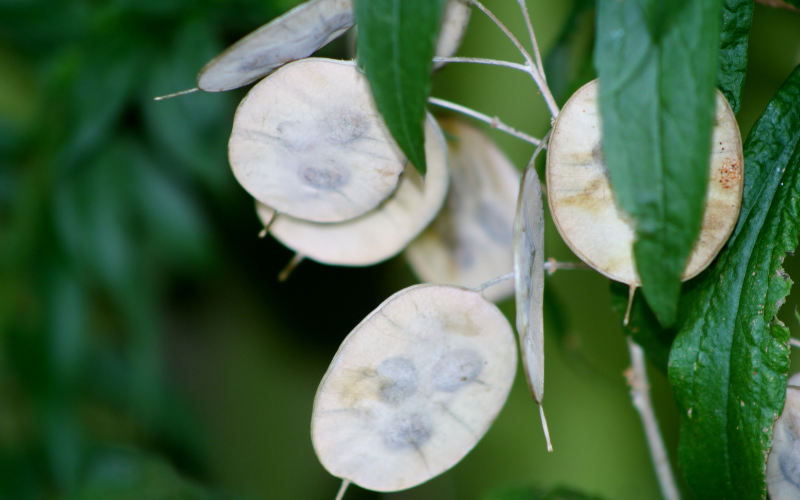
Lunaria annua is a biennial flowering plant that is often referred to as the “Money Plant”. It is commonly known as “Lunaria” or “Honesty.” It is native to parts of Europe. Lunaria has attractive heart-shaped leaves and produces clusters of fragrant flowers in shades of purple, pink, or white.
The flowers are delicate and can bloom in spring or early summer. With its stunning flowers or its fascinating seed pods, the Lunaria Money Plant is sure to captivate and spark imagination wherever it is grown.
| Scientific Name | Lunaria annua |
| Native Range | Southeastern Europe and Western Asia |
| Flowering Season | Spring |
Love-in-a-Mist
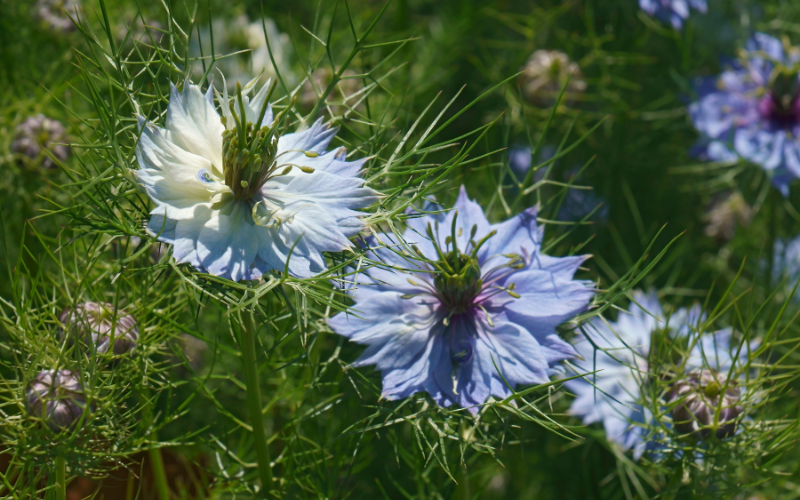
Love-in-a-Mist (Nigella damascena) is a charming and delicate annual flowering plant. It is native to southern Europe, North Africa, and Southwest Asia. Love-in-a-Mist produces intricate, star-shaped flowers with a unique and enchanting appearance.
The most common color for Love-in-a-Mist flowers is a soft, sky-blue shade. It also exists with flowers in pink, white, and lavender tones. Love-in-a-Mist is an easy-to-grow annual plant that self-seeds readily.
| Scientific Name | Nigella damascena |
| Native Range | Europe, North Africa, and Asia |
| Flowering Season | Late spring to early summer |
Lotus Nelumbo nucifera
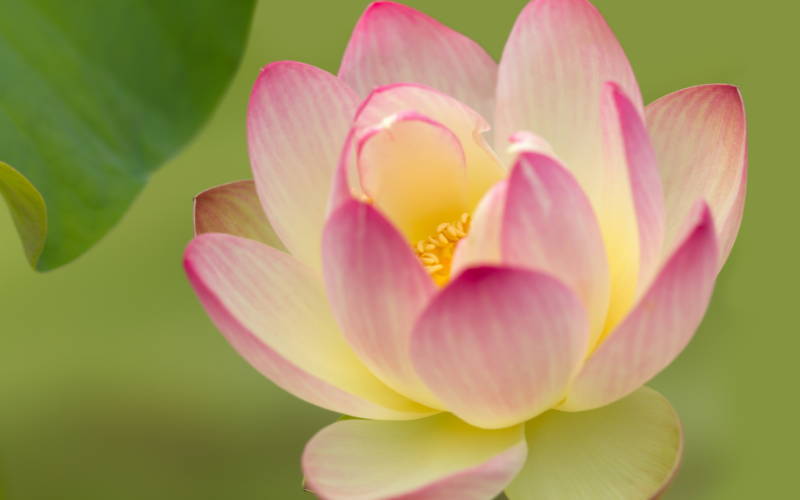
The Lotus (Nelumbo nucifera) is a sacred and iconic flowering plant. It belongs to the Nelumbonaceae family. The Lotus flower is known for its exquisite beauty and elegance. The flowers can be found in various colors, including white, pink, and red.
The Lotus is an aquatic plant, and it typically grows in shallow waters of ponds, lakes, and slow-moving rivers. The Lotus holds significant symbolic meanings in different cultures. It is often associated with purity, beauty, enlightenment, and spiritual growth.
| Scientific Name | Nelumbo nucifera |
| Native Range | Northern Indochina and East Asia |
| Flowering Season | Late spring through the summer |
Loosestrife
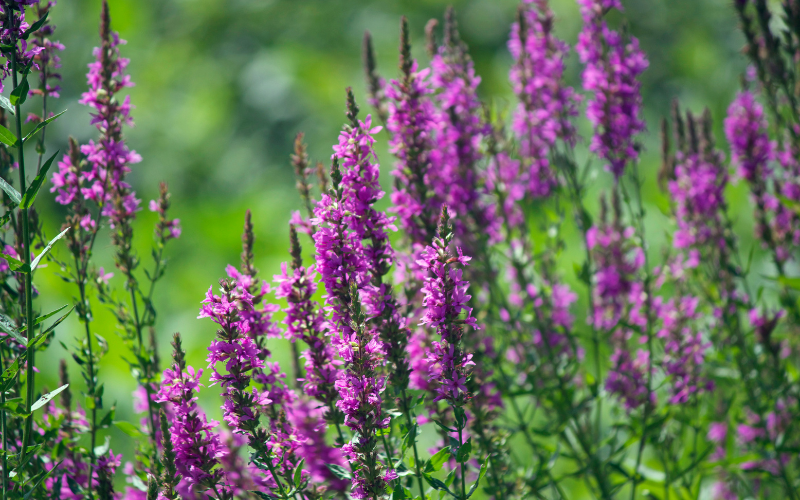
The loosestrife is a beautiful flower. It is scientifically known as Lysimachia vulgaris. It is native to Europe and parts of Asia. The flowers come in a range of colors, including shades of pink, purple, and white, each exuding its unique charm.
With its easy-to-grow nature and resilience in various soil types, Loosestrife is a versatile flowering plant that can thrive in gardens, borders, or even as a centerpiece in a vase.
| Scientific Name | Lythrum salicaria |
| Native Range | Europe, Asia, and northern Africa |
| Flowering Season | spring, summer, and sometimes into early fall |
Lonicera
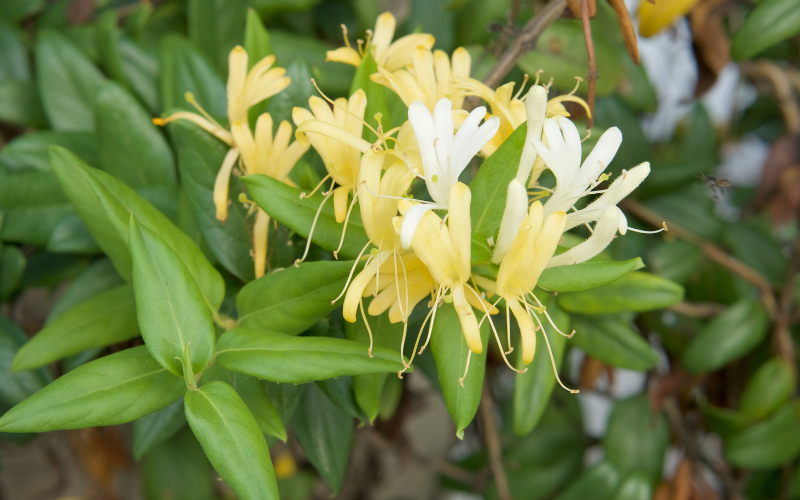
Lonicera is a beautiful flowering plant. It is commonly known as honeysuckle. This lovely plant belongs to the Caprifoliaceae family. They can be found in shades of white, yellow, pink, orange, and red.
Honeysuckles bloom during late spring and throughout the summer months. Honeysuckles can be either deciduous or evergreen, depending on the species.
| Scientific Name | Lonicera |
| Native Range | Northern latitudes in North America and Eurasia |
| Flowering Season | Summer to Early autumn |
Lobelia
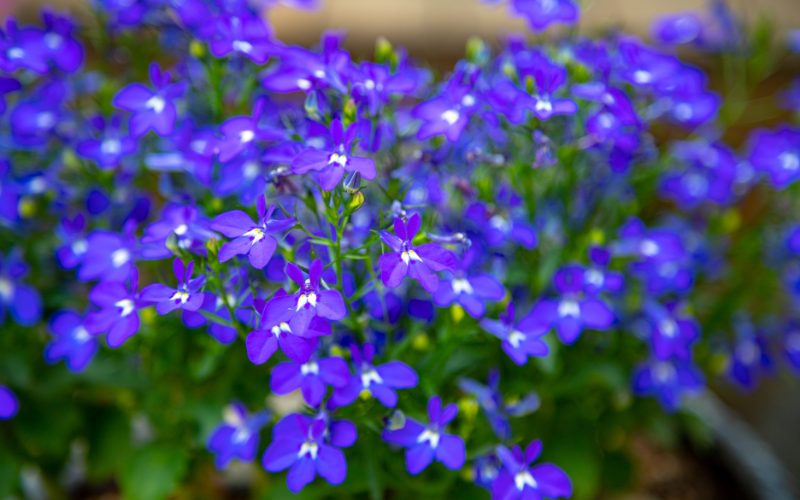
The Lobelia flower is a stunning and versatile plant. It is also known as Lobelia erinus. Lobelias are native to various regions, including North and South America, Africa, and parts of Asia and Australasia.
Lobelia flowers are typically small and tubular in shape, with five-lobed petals. The flowers can come in various colors, including shades of blue, purple, red, white, and pink. It is bloom in late spring through the summer months.
| Scientific Name | Lobelia |
| Native Range | Maine to Georgia west to Texas, Colorado, Wyoming, and the Dakotas |
| Flowering Season | Spring to Fall |
Lisianthus
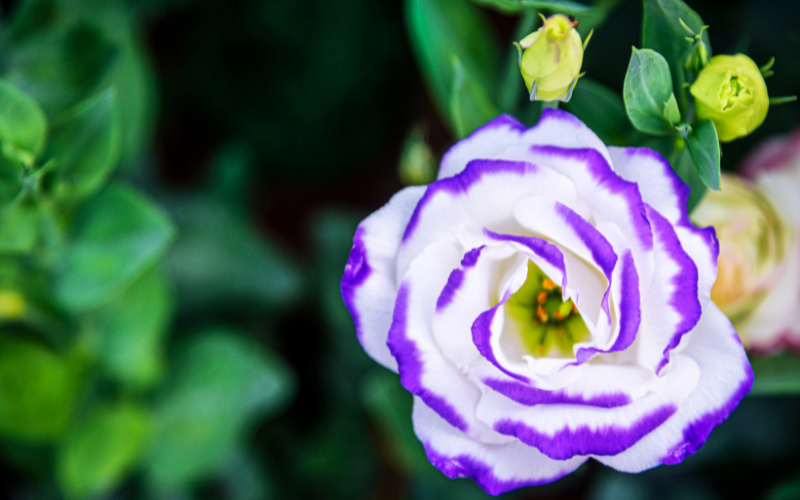
Lisianthus (Eustoma grandiflorum) is a stunning and popular flowering plant. It is native to the southern United States, Mexico, the Caribbean, and northern South America. They can come in various colors, including white, pink, lavender, purple, and blue.
Lisianthus typically blooms in the warmer months, during spring and summer. They have tall, upright stems and can reach heights of up to 18 to 36 inches (45 to 90 centimeters).
| Scientific Name | Eustoma grandiflorum |
| Native Range | Northern Mexico north to Colorado and Nebraska |
| Flowering Season | Summer |
Lindheimers Beeblossom
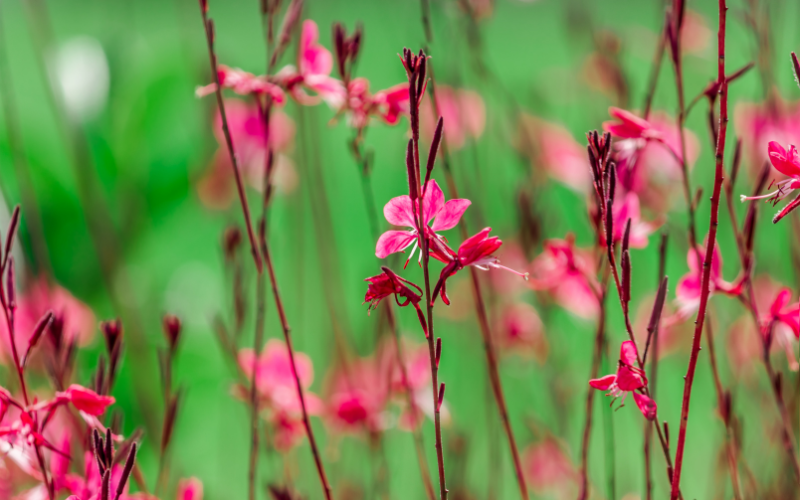
Lindheimer’s Beeblossom is a stunning flowering plant. It is scientifically known as Gaura Lindheimeri. It is native to the southern United States, particularly Texas. Lindheimer’s Beeblossom produces large, showy, and fragrant flowers with four bright yellow petals.
The blooming season of Lindheimer’s Beeblossom typically occurs from late spring to early summer. The plant can reach a height of about 2 to 3 feet (60 to 90 centimeters) when in bloom.
| Scientific Name | Oenothera lindheimeri |
| Native Range | Texas and Louisiana |
| Flowering Season | Early summer into fall |
Linaria
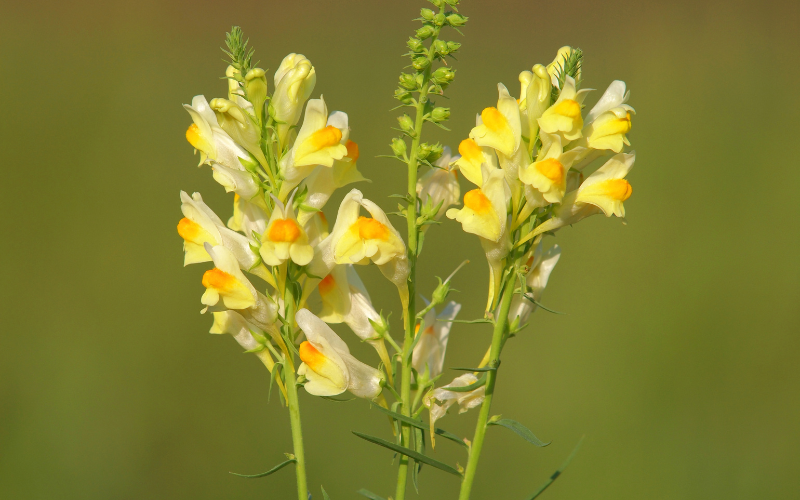
Linaria is a beautiful flower. It is native to Europe, Asia, and North Africa. Linaria flowers have a distinct and unique appearance, with a spur at the back of the tubular-shaped flowers.
Linaria flowers can come in various colors, including shades of yellow, orange, pink, purple, and white. It is bloom during the spring and summer months, with some continuing to flower into the fall.
| Scientific Name | Linaria vulgaris |
| Native Range | Europe, Siberia, and Central Asia |
| Flowering Season | Spring to fall in cool summer |
Limonium
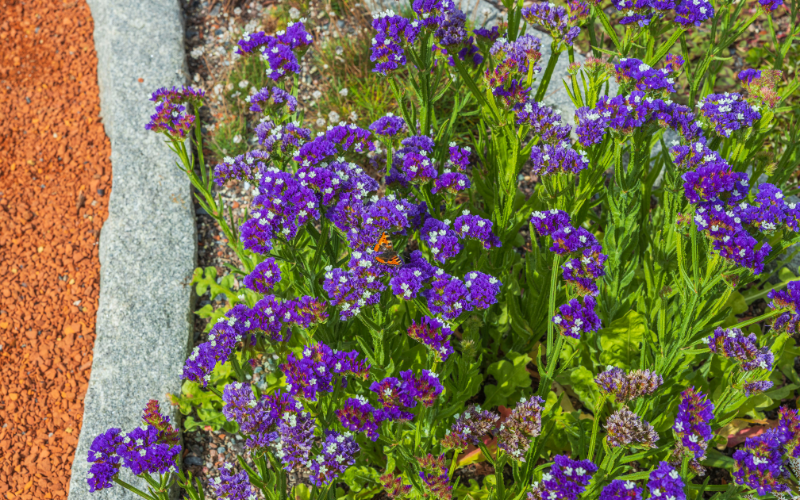
The Limonium is a stunning and unique flower. It is also known as sea lavender or statice. The flowers have five petal-like sepals and can come in various colors, including shades of purple, blue, pink, white, and yellow.
The Limonium blooms during the warmer months of spring and summer, with some species continuing to flower into the fall. Its long-lasting blooms and unique appearance add texture and interest to floral displays.
| Scientific Name | Limonium |
| Native Range | Europe, Asia, North Africa, the Americas, Australia |
| Flowering Season | Spring and Summer |
Lupine
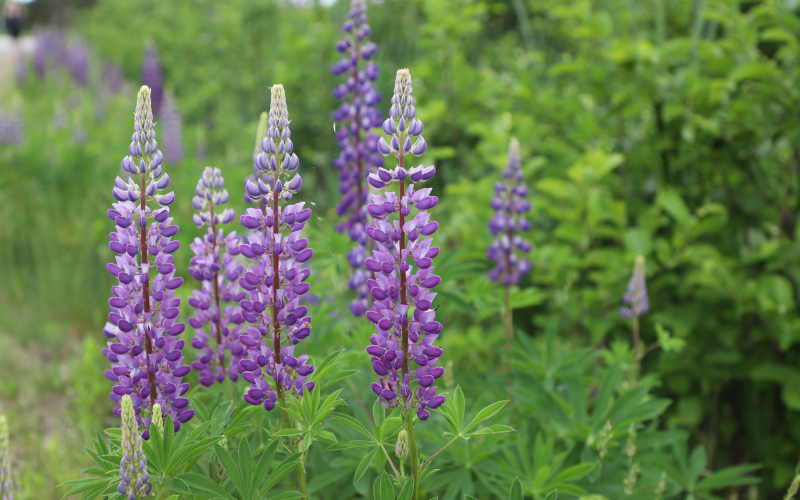
The Lupine flower is a true marvel of nature. It is native to North and South America, Europe, and Asia. It comes in a variety of colors, including shades of blue, purple, pink, red, yellow, and white.
They prefer well-drained soil and thrive in full sun to partial shade. The Lupine flower is a symbol of resilience and beauty, captivating hearts and minds with its stunning display year after year.
| Scientific Name | Lupinus |
| Native Range | North America |
| Flowering Season | Spring |
Lotus Nelumbo nucifera

Lotus Nelumbo nucifera is a beautiful flower. The flowers are large, alone, and held above the level of the water by long stalks. It is typically pink or white, but there are also varieties with yellow or red flowers.
In Hinduism and Buddhism, the Lotus is a sacred flower that represents spiritual growth, purity, and knowledge. They prefer full sun and can tolerate a wide range of temperatures.
| Scientific Name | Nelumbium speciosum |
| Native Range | North America |
| Flowering Season | Summer and Early Fall |
Lonicera

Lonicera is a stunning flower. It belongs to the Caprifoliaceae family. It comes in a range of colors, including yellow, orange, pink, and white. Lonicera prefers well-drained soil and can thrive in full sun to partial shade.
These flowers are also treasured for their medicinal properties, as they have been used in traditional Chinese medicine for centuries.
| Scientific Name | Lonicera periclymenum |
| Native Range | Asia,Europe, United States |
| Flowering Season | Spring |
Lily of the Valley
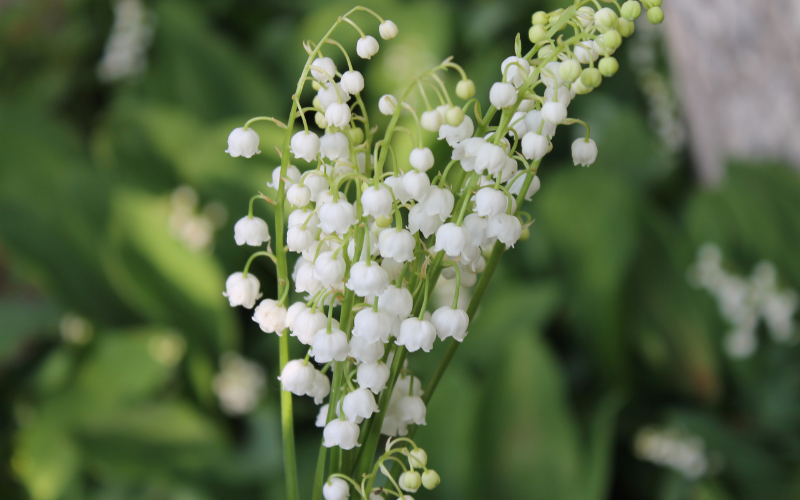
Lily of the Valley is a lovely flower. It is also known as Convallaria majalis. It is native to Europe and parts of Asia. The flowers are usually white or creamy white, creating a pure and elegant appearance.
It prefers moist, well-drained soil and thrives in cool, temperate climates. Lily of the Valley is associated with various cultural and symbolic meanings. It symbolizes purity, sweetness, and the return of happiness.
| Scientific Name | Convallaria majalis |
| Native Range | Asia and Europe |
| Flowering Season | Mid-Spring to Early Summer |
Lilac
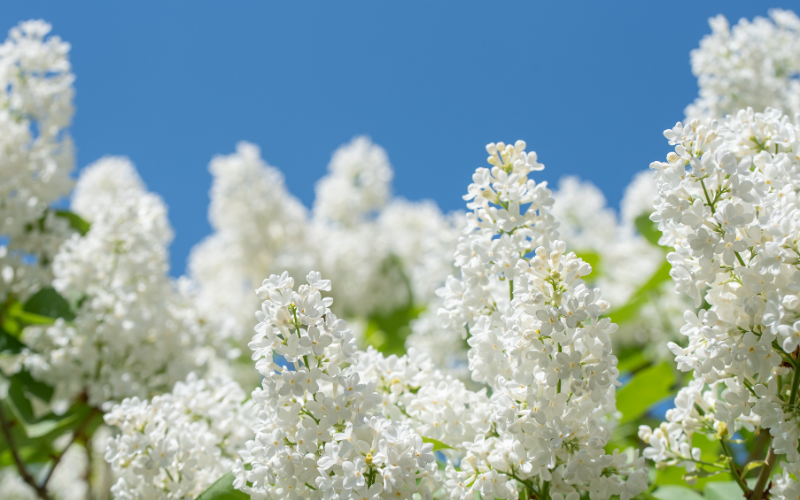
Lilac is a gorgeous flower. Lilac flowers come in various shades of purple, lavender, violet, and white. They prefer well-drained soil and full sun to produce the best flower displays.
They thrive in temperate climates and prefer well-drained, slightly alkaline soil. Full sun exposure is ideal for optimal flowering.
| Scientific Name | Syringa |
| Native Range | Eastern Europe and Temperate Asia |
| Flowering Season | Spring |
Licorice Plant
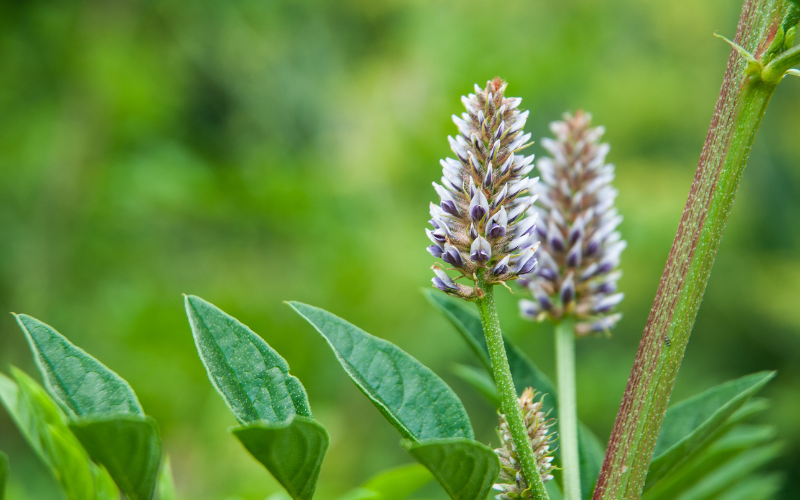
The Licorice Plant is a beautiful flower. It is scientifically known as Glycyrrhiza glabra. It is native to parts of Europe and Asia. It is typically grown as a trailing or cascading plant, making it well-suited for hanging baskets or as ground cover.
The flowers are usually pale yellow to cream in color. It is valued for its drought tolerance and ability to thrive in hot, sunny conditions.
| Scientific Name | Glycyrrhiza glabra |
| Native Range | Europe, parts of Asia, and North America |
| Flowering Season | Summer |
Liatris
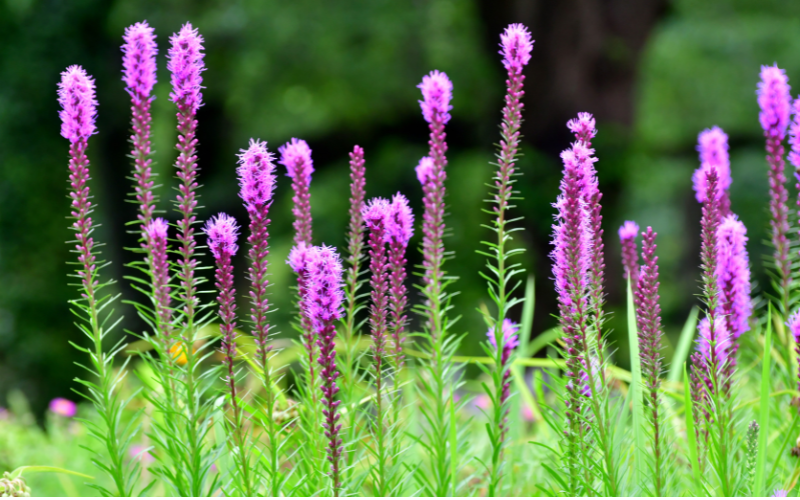
Liatris is a charming flower. It is also known as blazing star or gayfeather. It is native to North America. They come in various shades of purple, from deep purple to lavender. It can grow from a few inches to several feet in height.
They are perennials and prefer well-drained soil and full sun, making them excellent choices for garden borders and wildflower gardens.
| Scientific Name | Liatris |
| Native Range | North America |
| Flowering Season | Late summer to early fall |
Lewisia
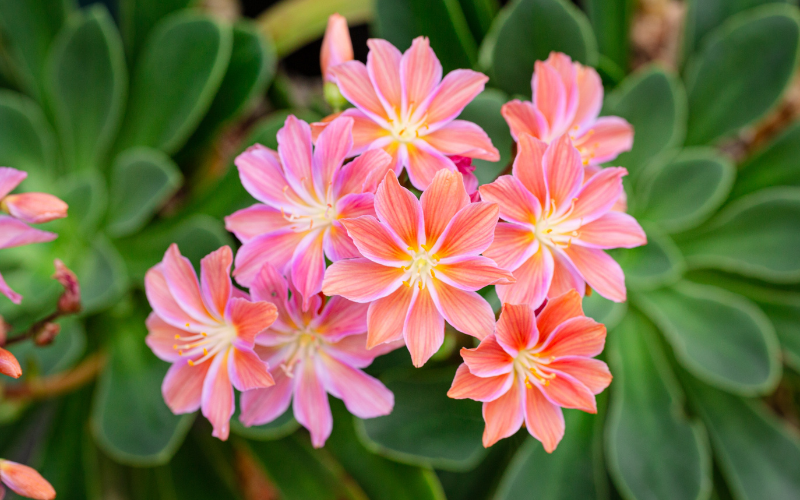
Lewisia is a beautiful flower. It is native to western North America. Lewisia plants produce clusters of small, cup-shaped flowers. It comes in shades of pink, purple, red, orange, yellow, and white.
Lewisia can bloom from late spring through summer. These plants are adapted to well-drained, rocky, or sandy soils, and they thrive in full sun to partial shade.
| Scientific Name | Lewisia |
| Native Range | North America |
| Flowering Season | Summer |
Leucojum
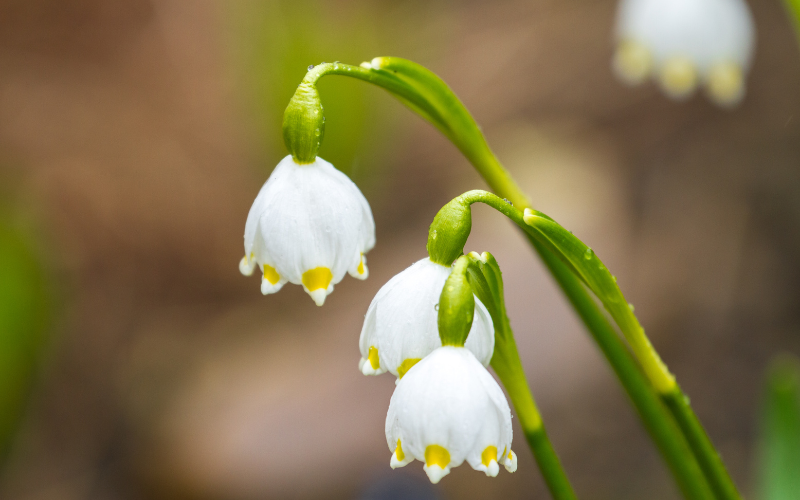
Leucojum is a stunning flower. It is known as a snowflake or summer snowflake. It is native to Europe and parts of the Middle East. It typically produces white flowers.
They prefer well-drained soil and partial to full shade, making them suitable for woodland gardens. Leucojum blooms in the summer.
| Scientific Name | Leucojum aestivum |
| Native Range | Europe and Asia |
| Flowering Season | Late summer and fall |
Leopard’s Bane
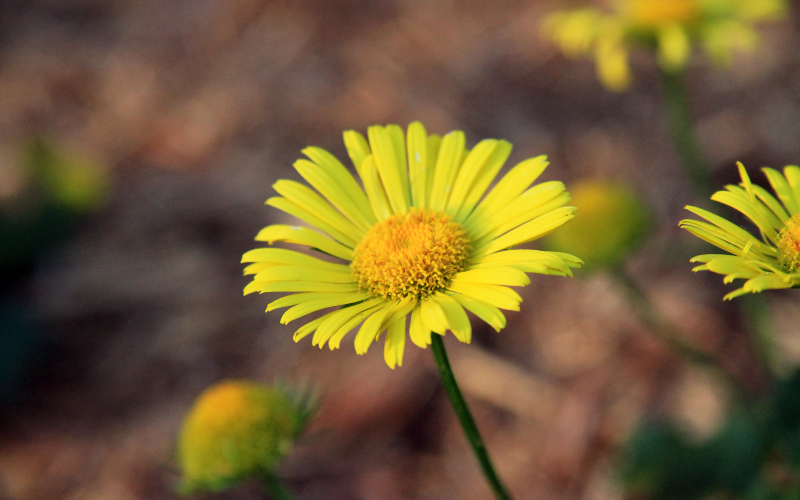
Leopard’s Bane is a lovely flower. It is scientifically known as Doronicum. It is native to parts of Europe and Asia. It prefers well-drained soil and can thrive in full sun to partial shade. The plant’s bright yellow flowers bloom in the summer.
Leopard’s Bane flower is known for its resilience, as it can withstand colder temperatures and is relatively low-maintenance, making it a popular choice for gardeners of all skill levels.
| Scientific Name | Doronicum |
| Native Range | Europe |
| Flowering Season | Spring |
Question & Answer
What flower looks like a rose starts with L?
One flower that looks like a rose and starts with “L” is the Lisianthus.
Is tulip flower found in India?
Yes, tulip flowers are found in India.
Which is the biggest flower in India?
The Rafflesia arnoldii is considered the largest flower in India.
What is the longest-named flower?
The longest-named flower is the “Erodium cicutarium filicifolium monstrosum macrorrhizum variegatum.”
